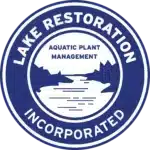Uncategorized
Pond Predators
When managing a pond, it is important to be aware of the many residents that will call it home. Birds, fish, amphibians, and rodents will flock to a well-kept pond. There will also be predators playing their part in the pond’s balanced ecosystem. You should make sure to monitor them and decide if you need…
Read MoreEssential Pond Care and Management Tips
Backyard ponds can be a great source of beauty and enjoyment for many homeowners. Having a pond in your backyard often adds a feeling of tranquility to your property. However, ponds can quickly fall into poor health and degradation if not maintained. Proper upkeep and pond management requires a commitment from a well-informed pond owner.…
Read MorePrepare Your Pond for the Fall and Winter Months
It is a great idea to start winterizing your pond once the fall weather comes and the pond’s water temperature begins to approach 60 degrees Fahrenheit. The first step is reducing debris and other organic matter. Any organic material in your pond will decay during the winter and deplete the water of oxygen. Leaves, sticks,…
Read MoreAquatic Pesticides Water Use Restrictions
The table below details what to expect for water use restrictions after applying common aquatic pesticides. Always consult the product label of the pesticide you are using for this information. Product Name Swimming Drinking Water Domestic Use Fish Consumption Irrigation – Food Crop Irrigation -Turf/Ornamental Livestock Watering …
Read MoreLake Shore Management – The Essentials
One common problem among all lake shore owners is that of weed management. Not only can the aquatic weeds clog up and potentially damage a boat’s motor, but quite frequently they are an unpleasant sight and a nuisance in any swimming area. Also, the build-up of algae (ie “pond scum”) can lead to a foul smelling environment…
Read More